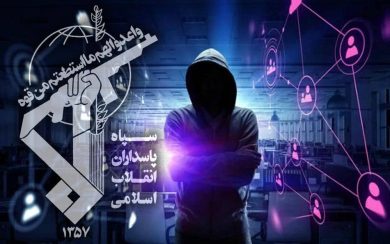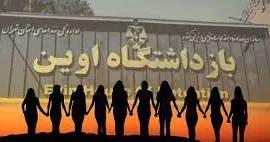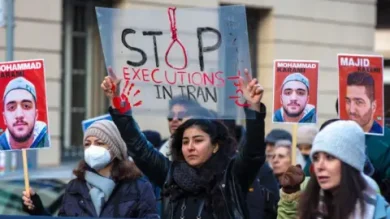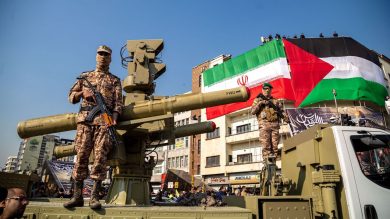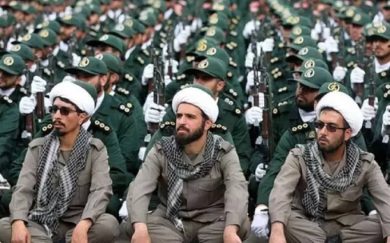The Islamic Revolutionary Guard Corps (IRGC) operates one of the most extensive and opaque economic empires in Iran, leveraging its control over key industries and financial networks to sustain its domestic and international operations. This economic dominance not only bolsters the IRGC’s political power but also funds its proxy wars, terrorism, and regional destabilization. The IRGC’s use of corruption and exploitation of Iran’s resources underscores the systemic issues that perpetuate both internal oppression and external aggression.
This analysis explores the IRGC’s economic empire, its corrupt practices, and how it finances terrorism and destabilizing activities, both within and beyond Iran’s borders.
Building the IRGC’s Economic Empire
Since its establishment after the 1979 Islamic Revolution, the IRGC has steadily expanded its influence in Iran’s economy. Initially tasked with defending the revolution, the IRGC leveraged post-war reconstruction opportunities in the 1980s and 1990s to become a dominant economic player. Its reach now spans almost every sector, from construction to telecommunications.
Key Sectors Controlled by the IRGC
1. Construction and Engineering
• Through its engineering arm, Khatam al-Anbiya, the IRGC controls major infrastructure projects, including roads, dams, and pipelines. It often bypasses competitive bidding processes, securing lucrative government contracts.
2. Energy
• The IRGC is heavily involved in Iran’s oil and gas industries, benefiting from direct government support and exploiting energy exports for revenue.
3. Telecommunications
• The IRGC has significant stakes in Iran’s telecommunications sector, using its control to monitor dissidents and activists while profiting from the industry.
4. Black Market Operations
• The IRGC runs smuggling networks, trafficking goods like oil, arms, and illicit substances to evade sanctions and generate income.
Corruption as a Business Model
The IRGC’s economic empire thrives on systemic corruption, which allows it to monopolize industries and amass wealth unchecked. Key corrupt practices include:
1. Exploiting Government Contracts
The IRGC uses its political connections to secure no-bid contracts for large-scale infrastructure and energy projects. This not only stifles competition but also diverts public funds into IRGC-controlled entities.
2. Sanctions Evasion
The IRGC circumvents international sanctions through an intricate network of front companies, offshore accounts, and smuggling routes. These activities generate billions in illicit revenue while undermining global efforts to isolate Iran economically.
3. Tax Evasion
The IRGC often operates outside of Iran’s formal financial system, avoiding taxes and oversight. This deprives the Iranian government of revenue while empowering the IRGC’s shadow economy.
4. Coercion and Extortion
The IRGC uses intimidation and violence to eliminate competitors, silence whistleblowers, and coerce businesses into partnerships that benefit its interests.
Funding Terrorism Through Economic Dominance
The IRGC channels its economic resources into funding proxy groups and terrorist organizations, fueling instability across the Middle East and beyond.
1. Financing Proxies
The IRGC provides significant financial support to groups like Hezbollah, the Houthis, and Shia militias in Iraq. These funds are used to purchase weapons, recruit fighters, and sustain operations that undermine regional stability.
2. Supporting Terrorist Activities
Revenue from the IRGC’s economic empire finances attacks orchestrated by its Quds Force and allied groups. Examples include:
• Hezbollah’s military operations in Lebanon and Syria.
• Houthi missile attacks on Saudi Arabia and the UAE.
• Terrorist plots targeting civilians and infrastructure in Europe, Africa, and South America.
3. Arms Proliferation
The IRGC uses its economic power to produce and distribute advanced weaponry, including drones and ballistic missiles, to its proxies.
This proliferation escalates regional conflicts and threatens global security.
Impact on Iran’s Economy and Society
The IRGC’s economic dominance and corruption have devastating consequences for Iran’s economy and its people:
1. Economic Inequality
The IRGC’s monopolization of key industries concentrates wealth among its leadership while leaving ordinary Iranians struggling with inflation, unemployment, and poverty.
2. Stifled Private Sector
By eliminating competition and favoring IRGC-linked enterprises, the organization suppresses entrepreneurship and innovation, hindering Iran’s economic growth.
3. Public Discontent
The IRGC’s corruption and exploitation fuel public anger, as seen in widespread protests against economic mismanagement and inequality. This resentment often targets the IRGC directly.
Global Implications
The IRGC’s economic empire poses significant challenges to international stability and governance:
1. Undermining Sanctions
The IRGC’s sanctions evasion undermines the effectiveness of global efforts to pressure Iran into compliance with international norms, enabling the regime to continue its destabilizing activities.
2. Financing Global Terrorism
By funding proxies and terrorist groups, the IRGC exacerbates conflicts, endangers civilians, and challenges the authority of legitimate governments in the Middle East and beyond.
3. Weakening International Financial Systems
The IRGC’s use of smuggling, money laundering, and black-market operations destabilizes global markets and weakens trust in international financial institutions.
Countering the IRGC’s Economic Empire
Confronting the IRGC’s economic influence is critical to limiting its ability to fund terrorism and destabilize the region. Key strategies include:
1. Strengthening Sanctions
Targeted sanctions on IRGC-linked entities, front companies, and leadership can disrupt its financial networks and limit its economic reach.
2. Enhancing Transparency
Encouraging transparency in Iran’s financial and industrial sectors can expose IRGC corruption and reduce its monopolistic control.
3. Supporting Iranian Civil Society
Providing resources to Iranian activists and whistleblowers can help expose the IRGC’s corruption and build grassroots opposition to its influence.
4. Coordinating International Efforts
Global cooperation on intelligence sharing, sanctions enforcement, and financial oversight is essential to dismantling the IRGC’s economic empire.
Conclusion
The IRGC’s economic empire is a cornerstone of its power, funding terrorism and enabling its destabilizing activities across the Middle East and beyond. By exploiting corruption and monopolizing Iran’s economy, the IRGC has entrenched itself as a threat not only to the Iranian people but also to global security.
Countering this economic empire requires a unified and sustained international response that targets the IRGC’s financial networks and supports efforts to promote transparency and accountability within Iran. Addressing the IRGC’s corruption and economic dominance is essential for fostering stability, both in the region and globally.
Join Our Newsletter!
Stay informed with the latest updates, news, and ways to take action in the fight for justice and global security. Sign up now to get updates delivered straight to your inbox!

